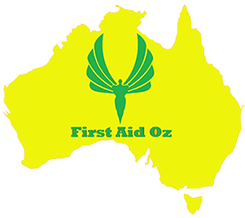Fainting & Shock
Fainting from Shock
It can happen because you’re extremely tired, have a heart condition, or are really shocked. It’s called fainting. The shock that so often causes fainting in movies is most often associated with being really scared or emotional. However, there is an actual medical condition known as shock. Fainting, and namely shock, are really serious, so it’s important you know what to do about it in terms of basic first aid.
Fainting
Fainting is defined as a loss of consciousness as a result of a temporary lack of oxygen supply to the brain. Sometimes, fainting has no medical significance or consequences, and other times, it can point to serious issues like a heart condition. This means that you should always suspect something is seriously wrong as a fail-safe when you see someone faint.
The first thing you need to do if you feel like you are going to faint, is to lie or sit down. Firstly, it helps push more blood to your brain, especially if you lie down. Secondly, you avoid seriously injuring yourself by not falling from a standing position. If you choose to sit down, put your head between your knees. When getting back up, make sure you do so slowly in order to minimize the chances that you’ll faint again.
First Aid treatment for fainting
If someone else faints, or feels they are going to faint, first thing you need to do is place them on their back. Assuming they are breathing, raise their legs above his heart and loosen any restrictive clothing or belts. If the person doesn’t come to within one minute, call 000.
When the person is lying on their back, make sure to check their airway to ensure it’s clear, and if you notice they are about to vomit, turn them on their side immediately so they don’t choke on their own vomit. If they faint, and you notice they are not breathing, begin CPR and call 000 immediately.
Shock
Shock is defined as a life-threatening condition characterized by an inadequate supply of blood and oxygen to the body’s organs and tissues.
There are many causes of shock, such as a serious bacterial infection, horrendous blood loss, a severe allergic reaction, poisons, and plenty more. When a person is in medical shock, their organs are not getting enough life-sustaining oxygen delivered to them. This causes the organs and tissues in the body to begin to die. The person can easily suffer from serious organ damage and death as a result.
Shock occurs as a result of the body’s circulatory system failing to work properly, which means that the tissues of the body, including the heart and the brain, struggle to get sufficient oxygen. The body’s response to this is to shut down the circulation to the skin – causing it to become pale, cold and clammy.
The heart speeds up as it struggles to get sufficient blood supply and oxygen and to draw the blood away from the gut, causing the casualty to feel sick and thirsty. They may also feel anxious, dizzy and a bit confused as their brain suffers from the lack of oxygenated blood too.
Signs & Symptoms of Shock
Potential sign of shock include pale skin, cool and clammy skin, and rapid breathing. Other signs include a rapid pulse; weakness, fatigue, dizziness, and fainting; enlarged pupils; and nausea and vomiting.
First Aid treatment for shock
If you think a person is in shock based on what you observe, then lay the person down and elevate their legs. Do this only if you know this isn’t going to hurt the person any more than they are already.
Otherwise, keep the person still and don’t move them unless they are in life-threatening danger, like another car is barreling down on top of both of you for some reason. Loosen all tight clothing and belts, and cover them with a blanket to keep them warm.
Do not give them anything to eat or drink as this can complicate matters. For instance, they might choke on the food or vomit it back up. If they vomit it back up, they might inhale it and die from that as a result.
If you notice the person is lying on their back and is about to vomit, immediately turn them to their side to prevent them from choking on their vomit. If you suspect there is a spinal injury, only do this with the help of someone else.
Copyright 2023
First Aid Oz is a trading name of Global Fitness Institute Pty Ltd. (RTO 21793)
Delivering Nationally Recognized First Aid Courses across Australia



